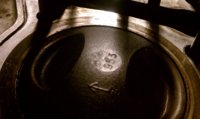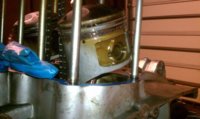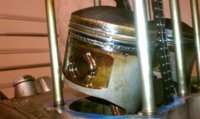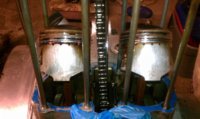Scrambled
Motorcycle Man
At least now you can stop messing with your carbs . Four strokes - intake - COMPRESSION- ignition - exhaust . I wonder how many other guys on here have been attacking their carbs without doing a compression test first ? Seems like almost every problem gets blamed on the carbs . My own recent problems were ignition , but I had four different shade tree mechanics that wanted to start messing with my jets .
It would be nice if all you needed at this point is to clean up your valves . Look on the bright side ,at least you know your way around your carbs now !
It would be nice if all you needed at this point is to clean up your valves . Look on the bright side ,at least you know your way around your carbs now !

 . I am glad to have an intimate knowledge of MY carbs. Just like my bike. As long as I dont hurt anything Im just learning. Cant do it right the first time everytime. I can guarantee that cleaning my valves is going to have a positive effect on my compression. How positive???
. I am glad to have an intimate knowledge of MY carbs. Just like my bike. As long as I dont hurt anything Im just learning. Cant do it right the first time everytime. I can guarantee that cleaning my valves is going to have a positive effect on my compression. How positive???  Thats the question.
Thats the question. 


